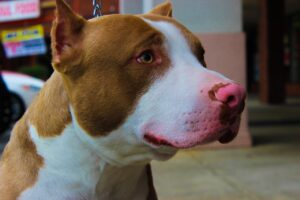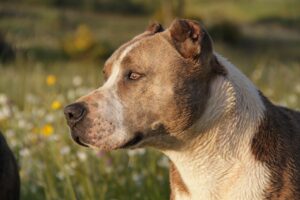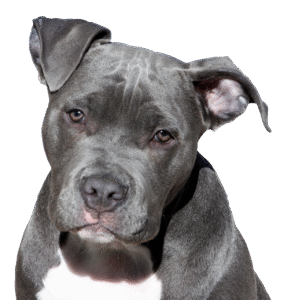The Alligator bloodline Pitbull—often called the “Gator Mouth” Pitbull—is one of the most talked-about names in the Pitbull world. Known for its power, loyalty, and mystique, this bloodline has sparked interest and debate among dog lovers.
But what’s the real story behind this unique line? Is it just hype, or is there more to it?
In this article, we break down everything you need to know—from its origins and traits to training tips and care essentials. Whether you’re a fan, an owner, or just curious, you’ll want to read on.
TABLE OF CONTENT
1. The Origins of the Alligator Bloodline Pitbull
- Key Traits of the Alligator Pitbull
- Temperament and Personality
- Training Tips for Alligator Bloodline Pitbulls
- Health and Wellness Considerations
- Grooming and General Care Needs
- How the Gator Bloodline Compares to Other Pitbull Lines
- Choosing and Raising a Gator Line Pupp es
9.FAQS
Q1. What is the Alligator bloodline in Pitbulls?
Q2. Are Alligator Pitbulls a separate breed?
Q3. Are Gator Pitbulls aggressive?
Q4. How can I tell if my Pitbull is from the Alligator bloodline?
Q5. Are Alligator Pitbulls legal in all areas?
10.Conclusion
2. Key Traits of the Alligator Pitbull

The Alligator bloodline Pitbull stands out not just for its name, but for its distinct features that make it a favorite among enthusiasts and breeders. These dogs were originally bred for strength, endurance, and determination—but they also have a look and presence that commands attention.
Muscular Build and Athletic Frame
Gator Pitbulls have a stocky, well-defined muscular body. Their strong shoulders, broad chest, and thick neck give them a powerful appearance. Despite their bulk, they are agile and quick on their feet—built for both power and speed.
Head and Facial Structure
These Pitbulls typically have a broad, blocky head with a pronounced jawline. The “Gator mouth” term refers to their strong, wide jaws, which were once prized in illegal fighting circles—not a point of pride today, but part of their historical image.
Coat and Color Variations
The coat is short, glossy, and low-maintenance. Gator Pitbulls can come in a range of colors, including:
- Brindle
- Blue
- Fawn
- Black
- Red nose and blue nose variations
Their coat doesn’t require intensive grooming, making them relatively easy to care for in terms of appearance.
Eyes and Ears
Their eyes are usually round to almond-shaped and can vary in color. Ears may be naturally floppy or cropped, depending on the breeder or owner’s preference—though natural ears are increasingly favored for humane reasons.
Size and Weight
Most adult Alligator Pitbulls fall into a medium-to-large size range:
- Height: 17–21 inches at the shoulder
- Weight: 45–70 pounds, depending on gender and individual genetics
They are compact yet powerful, often exuding more strength than their size suggests.
Stamina and Drive
One of the defining traits of the Alligator bloodline is drive—the instinctive determination and energy that fuels their behavior. These dogs are highly active and require both physical and mental stimulation. Bred originally for working and high-energy tasks, they don’t do well in sedentary households.
Gator Nose – A Misunderstood Feature
You may hear terms like “Gator Nose” used, but this isn’t an official or unique trait. It’s often just a label for the dog’s appearance, sometimes confused with “Red Nose” or “Blue Nose” Pitbulls. There’s no special breed feature here—just a nickname within Pitbull circles.
In summary: The Alligator bloodline Pitbull is muscular, alert, and built for action. Its physical traits reflect its powerful lineage and active temperament. But this look isn’t just for show—it’s a sign of the working spirit that lives in this dog’s DNA.
3. Temperament and Personality
The Alligator bloodline Pitbull may look tough on the outside, but its personality might surprise you. Beneath that muscular frame lies a loyal, intelligent, and often affectionate companion. Understanding their true temperament is key to appreciating this powerful breed—and separating myth from reality.
Loyal to the Core
Gator Pitbulls are deeply loyal to their families. They form strong bonds with their owners and are known for their unwavering dedication. Once bonded, they’ll stick by your side with fierce devotion. This loyalty also makes them naturally protective—alert, watchful, and ready to defend their pack.
Highly Intelligent and Trainable
This bloodline is sharp-minded. They learn quickly and respond well to consistent training. They thrive when given a sense of purpose—whether it’s obedience training, agility exercises, or structured play.
However, with intelligence comes stubbornness. If not properly guided, they might try to take charge. That’s why early training and firm leadership are essential.
Energetic and Playful
Gator Pitbulls are high-energy dogs. They love to run, jump, chase, and play. Without enough physical activity, they can become restless or even destructive. Daily exercise isn’t optional—it’s necessary for their health and happiness.
They do best with active owners who can keep up with their pace and provide regular physical and mental stimulation.
Family-Friendly but Needs Socialization
With the right upbringing, Alligator Pitbulls can be excellent family dogs. They’re known to be gentle and affectionate with children and can coexist with other pets—if properly socialized from an early age.
Without early socialization, they may become wary or reactive around unfamiliar people or animals. This makes proper introductions and early exposure to various environments crucial.
Misunderstood Reputation
Many people mistakenly believe that Gator Pitbulls are naturally aggressive. This myth often comes from their past involvement in illegal dog fighting rings. However, aggression is not a breed trait—it’s the result of poor training, abuse, or lack of socialization.
Well-raised Alligator Pitbulls are calm, friendly, and eager to please. With the right owner, they’re nothing like the stereotypes suggest.
Protective but Not Reckless
These dogs are natural guardians. They won’t attack without cause but won’t hesitate to defend their home or loved ones if truly threatened. With proper training, they can distinguish between a real threat and a normal situation.
This protective instinct, when guided correctly, can make them excellent watchdogs.
In summary: The Alligator bloodline Pitbull is a loving, loyal, and intelligent companion when raised right. While they may have a powerful presence, their true nature is shaped more by their environment than by their genes. With proper care, they can be both a fierce protector and a gentle family friend.
4. Training Tips for Alligator Bloodline Pitbulls

Training an Alligator bloodline Pitbull isn’t just recommended—it’s absolutely essential. These dogs are strong, smart, and full of energy. Without proper training and guidance, their power and intelligence can become overwhelming. With the right approach, however, they can grow into obedient, respectful, and well-rounded companions.
Start Early
The earlier you begin training, the better. Gator Pitbull puppies are eager to learn and form habits quickly. Introducing commands, routines, and basic obedience between 8 to 12 weeks of age lays the foundation for lifelong good behavior.
Even if you adopt an older Gator Pitbull, it’s never too late to train—but the earlier, the easier.
Establish Leadership—Be the Alpha
These dogs respect confident, calm leadership. If you don’t take charge, they will. Being the “alpha” doesn’t mean being harsh—it means setting clear rules and consistently enforcing them.
They need to understand that you control food, playtime, walks, and other rewards. This structure builds trust and respect.
Be Consistent
Consistency is one of the most important factors in training. Use the same commands, rewards, and expectations every time. If you’re inconsistent—like allowing them on the couch one day and scolding them the next—you’ll only confuse them.
Make sure everyone in the household follows the same rules. Mixed signals lead to behavioral issues.
Use Positive Reinforcement
Gator Pitbulls respond extremely well to positive reinforcement techniques. Reward them with treats, praise, toys, or affection when they follow a command or behave well.
Avoid harsh punishments—they don’t respond well to fear-based methods, and it can damage your bond. Instead, redirect unwanted behavior and reward the behavior you want to see.
Focus on Socialization
Socialization is just as important as obedience training. Introduce your dog to:
- Different people
- Other dogs and animals
- Noisy environments
- Unfamiliar situations
This helps them stay calm and confident in new settings and reduces the risk of fear-based aggression. Start socializing early and continue throughout their life.
Short, Frequent Sessions Work Best
Training sessions should be short (10–15 minutes) but consistent. Gator Pitbulls may become bored or frustrated if pushed too hard in one go.
Aim for multiple brief sessions each day instead of long, draining ones. End every session on a positive note.
Crate Training and Housebreaking
Crate training not only helps with housebreaking but also gives your Pitbull a safe, calming space of their own. Use the crate as a positive tool—not a punishment. Be patient during potty training and use positive cues and rewards when they go in the right spot.
Enroll in Obedience Classes (Optional but Helpful)
If you’re new to dog training or just want additional help, professional obedience classes can be a great investment. A structured environment with experienced trainers helps reinforce good behavior and builds social skills.
In summary: Training an Alligator bloodline Pitbull takes time, patience, and consistency—but the results are worth it. A well-trained Gator Pitbull is not only obedient and reliable but also more relaxed, confident, and bonded with you. With the right guidance, these dogs become model companions and outstanding members of the family.
5. Health and Wellness Considerations
Like any breed, the Alligator bloodline Pitbull has specific health needs that owners should understand. While these dogs are generally strong and resilient, knowing the potential risks and wellness tips will help keep your Pitbull healthy and active for years.
Common Health Issues
Though Gator Pitbulls are athletic and sturdy, they can be prone to certain genetic and lifestyle-related health problems:
- Hip Dysplasia – A common condition in many medium to large breeds, this occurs when the hip joint doesn’t form properly. It can lead to arthritis or limited mobility over time.
- Skin Allergies – Their short coat can make them prone to irritations caused by fleas, food, or environmental allergens.
- Heart Disease – Some Pitbull lines, including Gator, may carry a genetic predisposition to certain heart issues, particularly if not bred responsibly.
- Obesity – These dogs love to eat, and without enough exercise, they can gain weight quickly. Obesity can lead to joint stress and diabetes.
- Thyroid Disorders – Hypothyroidism, where the thyroid doesn’t produce enough hormones, is another concern. It can cause weight gain, fatigue, and skin problems.
Vaccinations: Myths and Side Effects
Vaccinating your Gator Pitbull is important for preventing serious diseases like parvovirus, rabies, and distemper. However, some owners worry about side effects.
Here’s the truth:
- Mild side effects like tiredness or slight swelling at the injection site are normal.
- Serious reactions are rare, but always monitor your dog after vaccination and report any concerning signs to your vet.
Always follow your vet’s recommended schedule and avoid over-vaccinating unnecessarily.
Lifespan and Longevity
With proper care, a Gator bloodline Pitbull can live 12–15 years. Genetics play a role, but lifestyle factors like diet, exercise, and regular vet checkups are just as important.
Keeping your dog active, mentally engaged, and at a healthy weight can significantly extend their quality of life.
Exercise and Mental Stimulation
These dogs need at least 60–90 minutes of daily physical activity. Walks, runs, tug-of-war, fetch, and agility exercises are great ways to keep them fit.
Equally important is mental stimulation. Puzzle toys, scent games, and obedience training can prevent boredom and destructive behavior.
Regular Vet Care
Routine checkups are essential to catch issues early. A typical health routine should include:
- Annual physical exams
- Dental checkups and cleanings
- Blood work for organ health
- Parasite prevention (fleas, ticks, heartworms)
Don’t skip preventive care—it’s far more effective and affordable than treating advanced disease later.
. Nutrition and Supplements
Feed your Gator Pitbull a high-quality, protein-rich diet. Look for food with real meat as the first ingredient and avoid cheap fillers like corn or soy.
Depending on your dog’s specific needs, your vet may recommend:
- Joint supplements (glucosamine, chondroitin)
- Omega-3 fatty acids for skin and coat health
- Probiotics for digestion
Always consult your vet before adding any supplements to your dog’s diet.
In summary: The Alligator bloodline Pitbull is generally a healthy, robust dog—but only with the right care. By focusing on proper diet, regular vet visits, exercise, and early attention to health issues, you can give your Gator Pitbull a long, vibrant life. Prevention is the key to keeping this powerful dog both happy and healthy.
6. Grooming and General Care Needs

Despite their rugged appearance, Alligator bloodline Pitbulls are fairly low-maintenance when it comes to grooming. However, proper care goes beyond brushing their coat. A full routine that includes hygiene, diet, mental stimulation, and daily structure is vital for their well-being.
Coat Care
Gator Pitbulls have a short, smooth coat that doesn’t shed heavily, making grooming relatively easy. Still, routine care helps keep their coat healthy and clean.
- Brushing: Once or twice a week with a soft-bristle brush or rubber grooming mitt helps remove loose hair and spread natural oils.
- Bathing: Bathe them every 4–6 weeks or as needed, using a gentle dog shampoo. Overbathing can dry out their skin.
- Drying: Towel dry after baths; avoid using a hairdryer unless it’s designed for pets.
Nail Trimming
Active dogs often wear down their nails naturally, but indoor dogs may need trimming every 2–3 weeks. Long nails can cause discomfort or injury. Use a dog nail clipper or grinder and avoid cutting the quick (the sensitive part of the nail).
Ear Cleaning
Check your dog’s ears weekly for signs of wax buildup, dirt, or infection. Use a vet-approved ear cleaner and cotton balls. Never insert anything deep into the ear canal.
Dental Care
Dental hygiene is often overlooked, but it’s essential for preventing gum disease, bad breath, and serious infections.
- Brush teeth 2–3 times per week using dog-friendly toothpaste.
- Provide dental chews and toys that help reduce plaque buildup.
Eye and Skin Checks
Gator Pitbulls are prone to skin irritations and allergies. Regularly inspect their skin for redness, bumps, or flaky patches. Look out for tear stains or discharge around the eyes.
Prompt treatment of skin issues can prevent infections or long-term irritation.
Feeding Routine
Consistency is key. Feed your Gator Pitbull at the same times daily and provide:
- High-protein, grain-free food suited for active breeds
- Fresh water at all times
- Controlled portions to avoid overfeeding
If switching foods, do it gradually over a week to avoid stomach upset.
Daily Routine and Mental Stimulation
Beyond physical grooming, these dogs need daily structure. A bored Gator Pitbull can become destructive. To keep their mind sharp:
- Use puzzle feeders
- Teach new tricks regularly
- Rotate toys to keep things fresh
Establish a consistent schedule for walks, play, meals, and rest. Predictability helps reduce anxiety and behavioral problems.
Weather Considerations
Due to their short coat, Gator Pitbulls can be sensitive to extreme temperatures:
- In winter, use a dog coat or sweater during cold walks.
- In summer, avoid long walks in high heat—opt for early morning or evening strolls and provide shade and water.
In summary: Grooming a Gator bloodline Pitbull isn’t complicated, but it does require consistency and attention to detail. From brushing and nail care to mental enrichment and routine, your efforts will help your dog stay clean, comfortable, and mentally balanced. A well-groomed Gator Pitbull isn’t just healthier—it’s also happier.
7. Is the Alligator Pitbull Right for You?
Owning an Alligator bloodline Pitbull is a big commitment. These dogs are powerful, intelligent, and full of energy—but they also need a confident, responsible owner. Before bringing one into your life, it’s important to understand if this breed matches your lifestyle, experience, and expectations.
Not for First-Time Dog Owners
Gator Pitbulls aren’t typically recommended for first-time dog owners. They require:
- Strong leadership
- Consistent training
- Proper socialization
- Daily physical and mental exercise
If you’ve never owned a high-drive, strong-willed dog before, this breed could be overwhelming. However, with the help of professional trainers and ongoing education, dedicated beginners can succeed.
Best for Active Individuals or Families
These dogs thrive in homes where activity is a daily routine. Ideal owners include:
- Runners, hikers, or outdoor enthusiasts
- Active families with older children
- Owners who work from home or have flexible schedules
Gator Pitbulls aren’t well-suited for people who spend long hours away from home or prefer a sedentary lifestyle. They need engagement, not just company.
Requires Time and Patience
From training and exercise to grooming and vet visits, this breed demands time. If your schedule is packed and unpredictable, a Gator Pitbull may struggle to adapt and behave well.
Daily routines, structure, and hands-on involvement are necessary for success.
Needs a Secure Living Space
These dogs are strong and determined. A secure, fenced yard is ideal for off-leash play—but the fence must be tall and sturdy. Apartment living is possible but will require extra effort to meet their energy needs.
Leaving them alone in an unsecured area or yard can lead to:
- Escaping
- Digging
- Destructive behavior
Compatibility with Other Pets
With proper socialization, Gator Pitbulls can live peacefully with other dogs. However, due to their strong prey drive and dominance tendencies, caution is needed—especially with:
- Smaller pets like cats, rabbits, or rodents
- Other strong-willed or same-sex dogs
Supervised introductions and early training help reduce risks, but each dog is unique.
Financial Commitment
Raising a healthy, well-balanced Gator Pitbull involves regular costs, including:
- High-quality food
- Vet care and vaccinations
- Training classes (optional but helpful)
- Grooming supplies and toys
- Emergency care or insurance
Be prepared for the financial responsibility before committing.
Legal Restrictions and Breed-Specific Laws
Unfortunately, Pitbulls—including those from the Alligator bloodline—are restricted in some cities, housing complexes, and countries. These Breed-Specific Legislation (BSL) rules may limit where you can live or travel.
Before getting one, check your local laws and rental policies to avoid heartbreak later.
In summary: The Alligator Pitbull is not for everyone—but for the right owner, they are loyal, intelligent, and incredibly rewarding companions. If you have the time, energy, discipline, and commitment, this breed can be an exceptional addition to your life. But if you’re unsure, it’s better to wait or consider a more beginner-friendly breed.
8. Separating Fact from Fiction: Common Myths About the Alligator Pitbull

The Alligator bloodline Pitbull is often surrounded by controversy, confusion, and misinformation. Due to its history and physical strength, many people form opinions based on fear rather than fact. Let’s break down the most common myths and reveal the truth behind this misunderstood breed.
1. Myth: Alligator Pitbulls Are Naturally Aggressive
Truth:
Aggression is not a natural or defining trait of the Gator bloodline. While they were originally bred for strength and endurance, their temperament is shaped more by upbringing than genetics. A well-socialized, properly trained Alligator Pitbull can be calm, affectionate, and obedient.
Aggression in any dog is usually the result of:
- Poor training
- Lack of socialization
- Abuse or neglect
- Fear or anxiety
2. Myth: Gator Pitbulls Are Used Exclusively for Dog Fighting
Truth:
While the Alligator bloodline does have historical ties to old fighting lines, today’s breeders focus on temperament, health, and conformation. Many modern Gator Pitbulls are loving pets, therapy dogs, working dogs, and family companions.
The past does not define the present. Just like with many other breeds, proper breeding and responsible ownership make all the difference.
Myth: They Are Dangerous Around Children
Truth:
Gator Pitbulls can be incredibly gentle, loyal, and affectionate with children—if raised correctly. They are protective by nature and can form deep bonds with kids.
That said, supervision is always important with any breed. Teach both the dog and children how to respect each other’s space, and never leave small children unattended with any dog.
Myth: They Can’t Be Trained
Truth:
In reality, Alligator Pitbulls are highly intelligent and eager to learn. They thrive with structured training and firm, positive leadership. Many excel in obedience, agility, and even service roles.
The key is consistency and early training. They do best with confident, experienced handlers who provide clear guidance.
. Myth: All Gator Pitbulls Are the Same
Truth:
The term “Alligator Pitbull” refers to a bloodline, not a single, uniform dog. Temperament, size, and energy levels can vary depending on:
- Individual genetics
- Breeding practices
- Early life experiences
- Environment
Not all Gator Pitbulls will act the same, and assumptions based on the name alone are misleading.
. Myth: They Are Illegal Everywhere
Truth:
Breed-Specific Legislation (BSL) exists in certain areas, but not everywhere. Many cities and regions allow Pitbull ownership with proper restrictions or permits. Responsible ownership, training, and licensing can help keep your dog out of legal trouble.
Before adopting a Gator Pitbull, check local laws and housing policies. Where legal, many Gator Pitbulls live safely and happily with loving families.
. Myth: They’re Only for “Tough” People
Truth:
These dogs don’t need a “tough” or aggressive owner—they need a calm, firm, and loving leader. A gentle, balanced home is far better for their development than one based on intimidation or force.
Despite their intimidating look, Gator Pitbulls are emotionally sensitive. They respond best to kindness, patience, and structured guidance.
In summary: The Alligator Pitbull may have a dramatic name and a powerful presence, but much of the fear around them is based on outdated myths and misunderstanding. When raised with love, trained with consistency, and treated with respect, these dogs are loyal, smart, and affectionate companions.
Q1. What is the Alligator bloodline in Pitbulls?
The Alligator bloodline refers to a specific lineage of American Pit Bull Terriers originally bred for strength, agility, and endurance. It originated from a dog named “Rodriguez’s Gator,” and the line became known for its working drive and physical resilience.
Q2. Are Alligator Pitbulls a separate breed?
No. They are not a separate breed. The Alligator Pitbull is a bloodline within the American Pit Bull Terrier breed. The breed remains the same; only the lineage and breeding history differ.
Q3. Are Gator Pitbulls aggressive?
Not inherently. Like any dog, their behavior depends on training, socialization, and environment. A properly raised Gator Pitbull is usually loyal, intelligent, and obedient—not aggressive.
Q4. How can I tell if my Pitbull is from the Alligator bloodline?
Unless your dog came with pedigree papers or lineage documentation, it can be very hard to confirm bloodline. Some breeders may also identify certain physical traits, but official registration is the most reliable method.
Q5. Are Alligator Pitbulls legal in all areas?
Unfortunately, no. Some places have breed-specific laws that restrict or ban Pitbull ownership—including Alligator bloodline dogs. Always check local regulations before getting one.
Conclusion
The Alligator bloodline Pitbull is a powerful, intelligent, and loyal companion—but it’s not a breed for everyone. With the right training, care, and commitment, this dog can thrive as a loving family member and a dependable partner. Understanding its history, needs, and temperament is key to building a strong, respectful bond. If you’re ready to invest time, energy, and leadership, the Alligator Pitbull can offer unmatched loyalty and companionship for years to come.

